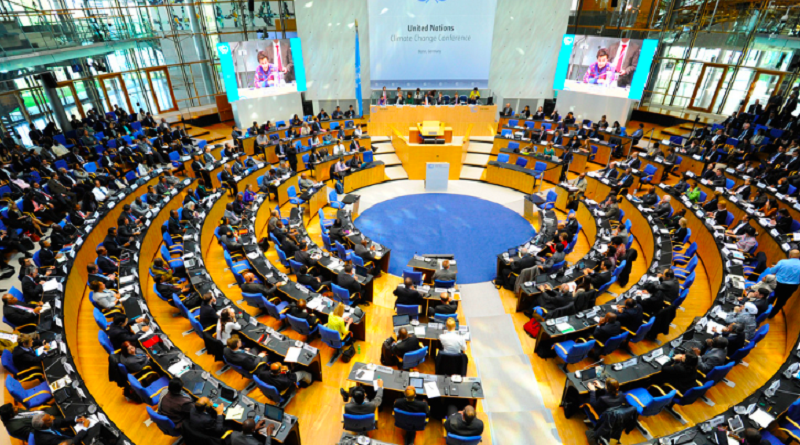Bonn climate talks: Experts call for better regional observation, services
Scientists meeting at the UN Climate Change Conference in Bonn this week (to 18 May) have warned of accelerating global climate impacts and called for more and better regional observation to help local populations build resilience to climate change with the help of more precise forecasts and modeling.
This is particularly important given the fact that the current global average temperature is affecting different regions in different ways. While global climate models provide important projections, they generally cover vast regions encompassing different landscapes, each with varying potential for floods, droughts, and other extreme events.
In Bonn, the Arctic Council reported that the Arctic has been warming twice as fast as the rest of the planet. And other experts said that for Africa, with several regions already facing severe droughts, more extreme dryness is projected. However climate impacts in Africa will vary – for example, the Horn of Africa could see increased rainfall by the end of the century. Because of this, it is crucial for individual countries and the international community to build capacity to better and understand and prepare for the changes to come.
And given that differences in regional climate projections are so large, it is essential to update adaptation and disaster risk policies according to regional hazard scenarios.
Key projected changes in the Arctic for 2050. The Arctic Council predicts diminishing ice and snow, thawing permafrost, and increasing methane release.
Impacts of Climate Change on the Arctic
Experts of the Arctic Council noted in Bonn that:
The Arctic Ocean could be mostly free of summertime sea ice as early as the late 2030s, only two decades from now. Sea ice in the Arctic Ocean has already declined by 65% since 1975.
Over the past 5 years, Greenland alone lost an average of 375 gigatons of ice per year – the equivalent of a cube of ice measuring 7.5 km on all sides.
Arctic land-based ice is undergoing severe melt, projected to contribute to an estimated 25 centimeters of sea-level rise by the end of the century under current emission trends.
Arctic soils hold about 50% of the world’s soil carbon within permafrost. Thawing permafrost is expected to contribute significantly to future greenhouse gas emissions.
Impacts of Climate Change on Africa
Africa, one of the warmest land masses on Earth, is also seeing warming higher than the global average. The following findings were presented in Bonn:
2010 was the hottest year on record in Africa, at 1.4 degrees Celsius above pre-industrial levels. In the same year, the global average was 0.7-0.8 degrees (Info: The African Centre for Meteorological Applications for Development).
Some regions of Africa will see an 8-14 percent decrease in precipitation this century, will other regions could see more rain (source: Karlsruhe Institute of Technology (see projections below)
Partnerships Can Boost Regional Cooperation
Participants of the Science Dialogue at the UN Climate Change Conference in Bonn agreed to continue to develop regionally focused activities and to advance and coordinate the science and application of regional climate modeling through global partnerships.
These partnerships include:
The World Meteorological Organization’s (WMO) Regional Climate Centers, which assist WMO members deliver regional long-range forecasts, and strengthen their capacity to meet national climate information needs. The WMO has several activities by which it assists nations in capacity development through technical and institutional infrastructure. Read more here.
The World Climate Research Programme’s coordinated regional climate downscaling experiment (CORDEX), a program which provides an internationally coordinated framework to improve regional climate projections. To learn more, see here.
The West African Science Service Center on Climate Change and Adapted Land Use (WASCAL), a 10-country climate service center tasked at strengthening climate research infrastructure and capacity in West Africa with Germany. See more here.
By coordinating on regional climate science through partnerships, scientists are hoping to better understand regional climate phenomena, improve climate predictions, and global regions’ vulnerability to climate change. Regional climate data is important for national adaptation plans, action to reduce greenhouse gas emissions and decisions on addressing loss and damage as a result of climate change risks.




